
Mon-Fri 9am-5pm
Talk to our friendly electric car leasing experts now: 01942 910 001This website uses cookies to ensure you get the best experience. Learn more
Salary sacrifice: The future of EVs?
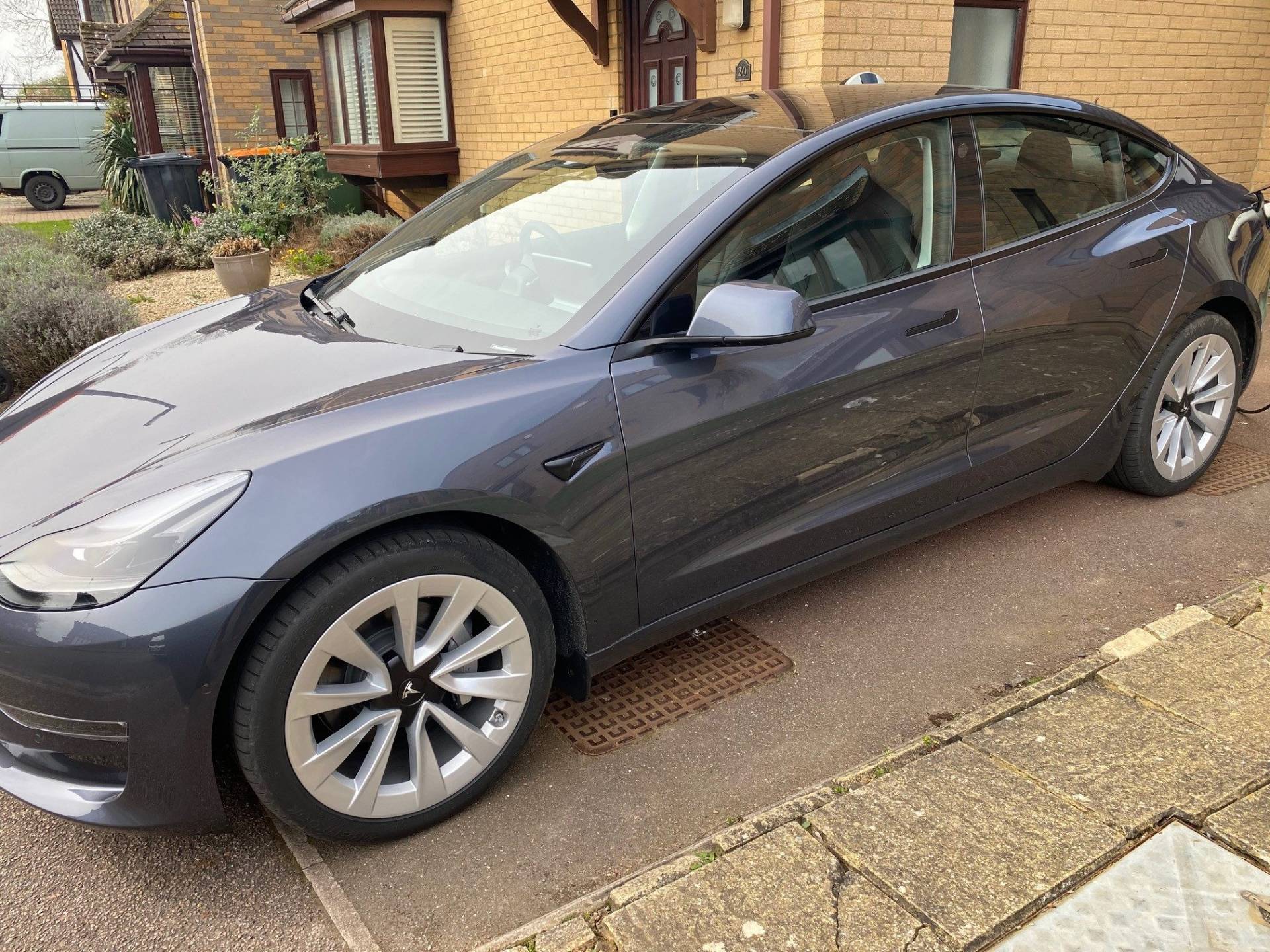
Is salary sacrifice the future of EVs?
The growth of salary sacrifice, or 'sal sac' as it is commonly referred to, has very much grown in conjunction with the new-age of electric cars. But what is salary sacrifice and why should we look at it? For any employer (or employee) looking into this, you need to spend some time understanding exactly how the salary sacrifice scheme will work; this is not quite as a simple as a personal or business lease on EV which the e-car lease team would generally offer on the website.
On 7 April, one of the key companies in the electric vehicle world, Octopus Electric Vehicles, announced a new scheme for their customers. This new services, Electric Dreams, is a response to what they are claiming is a “surge in interest” from their business customers. Already, some of their employer database, which includes Huel and Purplebricks, are busily sending over enquiries as employees look to take advantage of their new scheme. To add further bonus, the Octopus team are offereing a free smart charger and 8,000 miles worth of “green electricity” via their Octopus Energy contingent.
What is salary sacrifice or 'sal sac'?
Unlike a business contract hire situation, the employee gives up (or sacrifices) some of their salary to pay for the lease. This is deducted from their gross pay (i.e. before relevant tax is applied) and so this reduces the National Insurance and tax bill. The employer will also benefit from some slight benefits, as their corresponding National Insurance obligations will be correspondingly reduced. So is it just that easy? Well, not exactly.
Before you can proceed with a salary sacrifice arrangement the employer need to effectively set up a formal scheme, which includes formal documentation and correspondence with HMRC. BCF Wessex have produced the leading company car tax, whole of life cost and salary sacrifice calculators in the form of Gensen. These allow the employer (or fleet company) to physically calculate the relevant tax savings for the employee. However, in addition to this the employer needs to set up a formal scheme, which includes separate agreements with the employee where they agree to sacrifice their salary (which can also be considered as a variation in contract).
But are there risks to the employer with the salary sacrifice scheme (what should my business be aware of?)
- The vehicle is leased in the business name and therefore the primary obligation is on the employer to satisfy the finance company. It will also appear on the balance sheet;
- Early termination - the early return of the lease vehicle will be the responsibility of the employer. To mitigate the risk, the employer may look into an insurance product or put in place a separate agreement with the employee so that they have to pay should they leave the company. Some leasing companies will agree not to charge the employer (but do not presume this);
- Work absences - for any sick leave, paternity and maternity, what policies are in place for the vehicle. In particular, are there any National Minimum Wage issues for more expensive vehicles for lower-income employees;
- Insurance - will the vehicle be insured by the company (to mitigate risk in a write-off) or will the employee be paying for this;
- Contract of employment - will there to be a variation as part of the arrangement;
So why is there such an uptake on salary sacrifice?
For the employer, it is a great benefit to offer their employees and enhance retention. For an employee this is a cost-effective way to procure a car, plus some employees do not have the personal credit to necessitate the option of new cars. Add to that the “company car tax” position with EVs and you have a real, credible way of getting a new car. As a salary sacrifice is a benefit, the employee must pay tax. With EVs currently (April 2021-March 2022) having a 1% BiK rate, the cost to the employee is negligible, even for more expensive cars, like the ever-popular Tesla Model 3 shown here.
Example of how salary sacrific can work
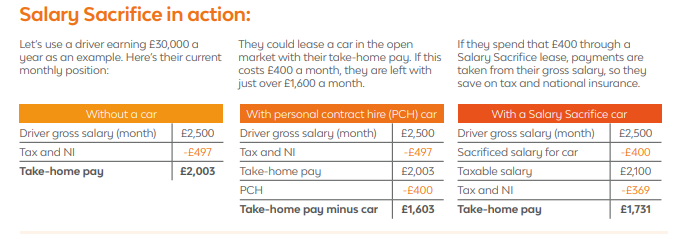
And the results do speak for themselves. In the latest data from the SMMT the March registration results were somewhat outstanding. As you will note, of the 283,964 vehicles registered, the bestselling EV was the Tesla Model 3 with an incredible 6500+ variants being registered. This accounted for 10% of the new EV car registrations, as nearly 61,000 pure electric cars were registered in March 2021 (some 80% more than last year!). Of this, salary sacrifice would have contributed massively.
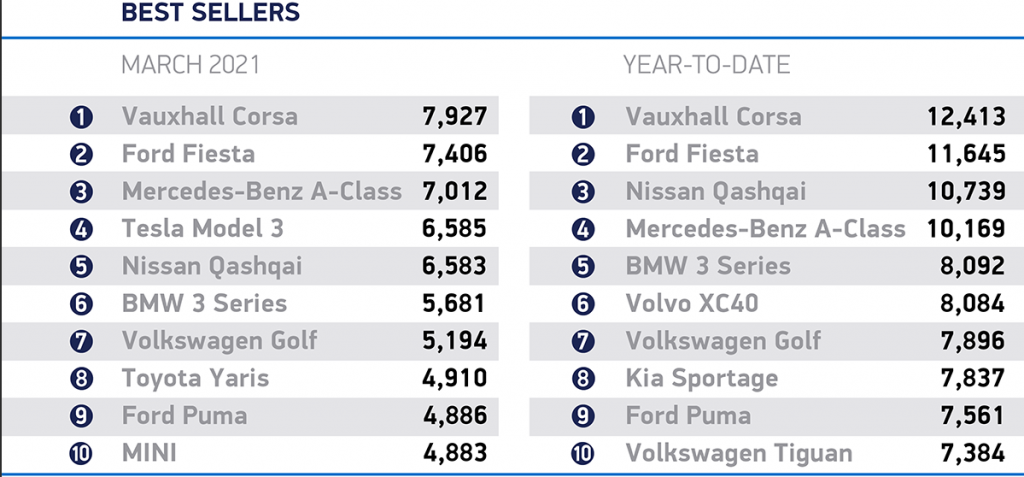
Tesla Model 3 Saloon Long Range AWD Auto 4 Door Pure Electric Vehicle
In terms of the car shown, the Tesla Model 3 Saloon Long Range AWD Auto 4 Door Pure Electric Vehicle, this is based on the following configuration:
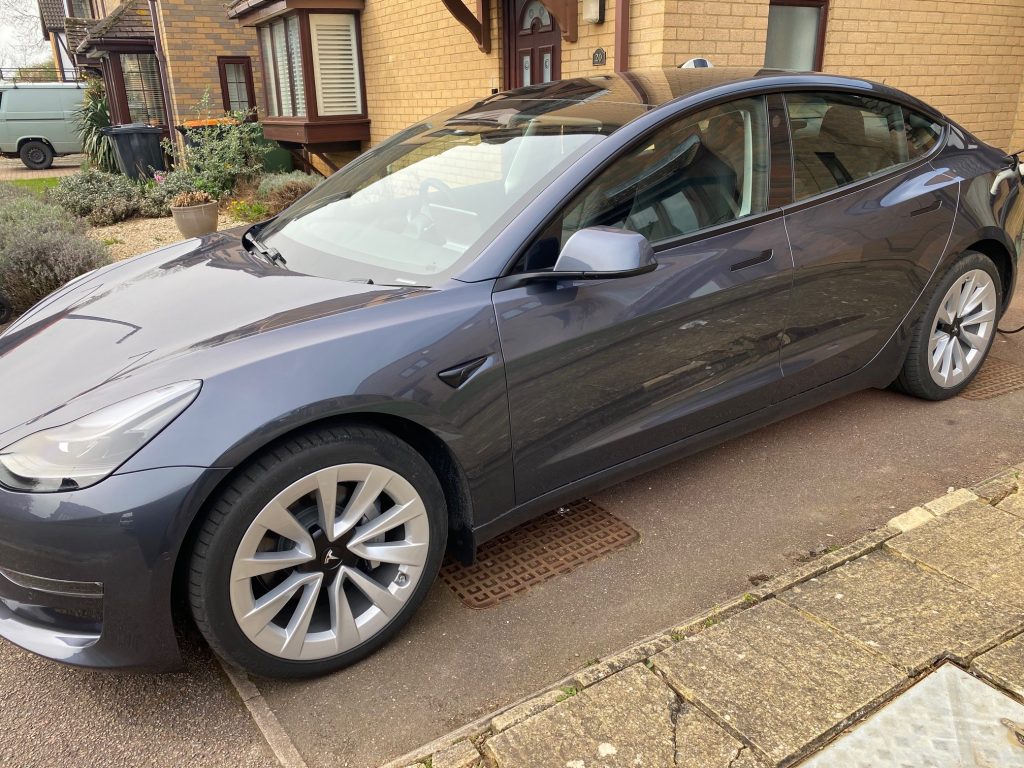
- Midnight Silver Metallic paint
- Premium material - Black PUR seat
- 19" Silver sports wheels
As standard the car includes 18” alloys , base autopilot, autonomous emergency braking, ESC, ESP, adaptive cruise control, front and rear parking sensor, park assist camera, adaptive steering.
Rear cross traffic camera, traffic sign recognition, power boot lid, 15” touchscreen, auto dimming/power folding and heated door mirrors, DAB radio, BLIS, premium audio (14 speakers/1 amp and immersive.
Automatic high beam assist, LED headlights and daytime running lights, ambient interior lighting, tinted glass roof, 60/40 split folding seats, 12-way adjustable heated front and rear seats, alarm and immobiliser. In terms of additional options, consider - enhanced autopilot or the 19” sport wheels.
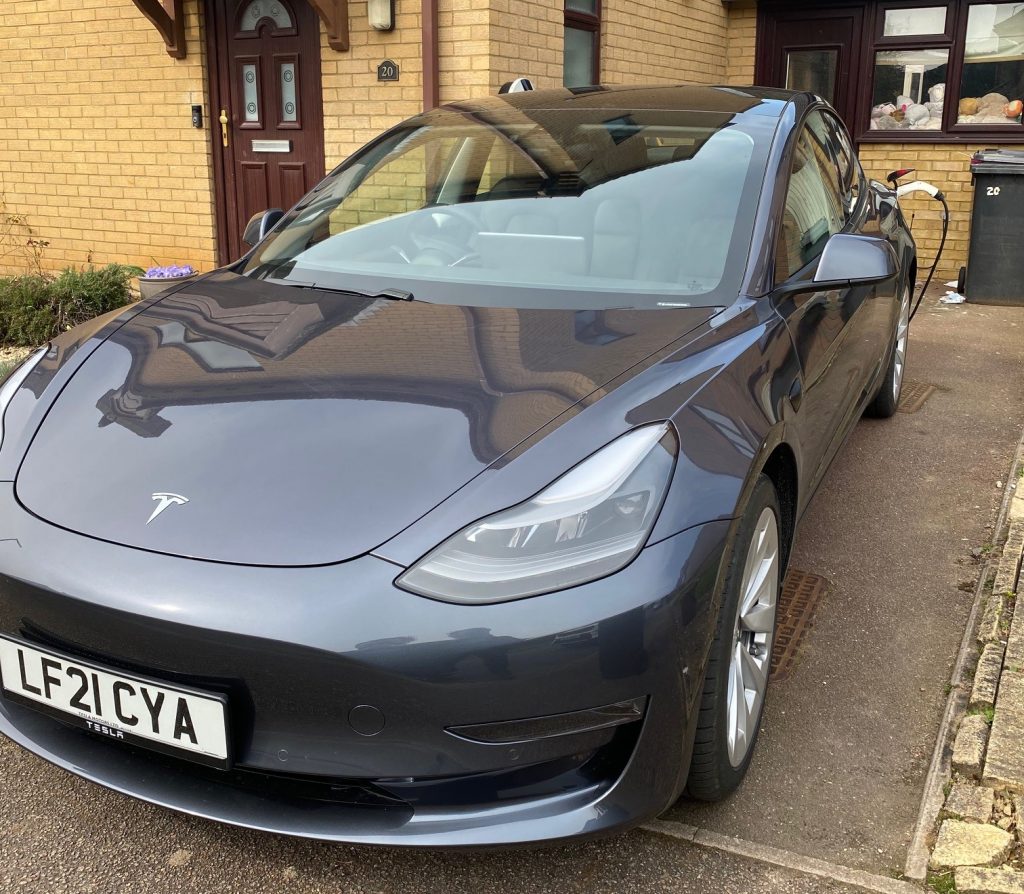
On the technical side, company car and salary sacrifice users can note the P11d at £50,935 and CO2 at 0g/km.
The 78kWh lithium-ion battery delivers 351ps, 0-62 times of 4.2 seconds and service intervals of 24 months/25000 miles. For the range of a Tesla Model 3 expect 235-250 in winter and 330-350 in summer.
On charging times, a standard 7.4kW will take 11 hours to fully-charge the vehicle and a rapid 50kW DC will take around 60-70 minutes for 10-80%. A quicker 150kW DC Tesla option will achieve the same in 35 minutes.
e-car lease work alongside these select finance companies:





e-car lease have a partnership and affiliation with:



Register & get new deals weekly
 Exclusive offers
Exclusive offers
 Electric-only deals
Electric-only deals
 Never miss out
Never miss out

Talk to one of our experts
01942 910 001 Email usLeasing


© Copyright 2025 e-car lease. All rights reserved. e-car lease is a trading name of CarLease (UK) Ltd, e-car lease is a credit broker and not a lender. We are authorised and regulated by the Financial Conduct Authority. Registered No: 706617. BVRLA Membership No. 1471. Registered in England & Wales with Company Number: 09312506 | Data Protection No: ZA088399 | VAT No: 200422089 | Registered Office: Kings Business Centre, Warrington Road, Leigh, Greater Manchester, WN7 3XG
Made by morphsites®












